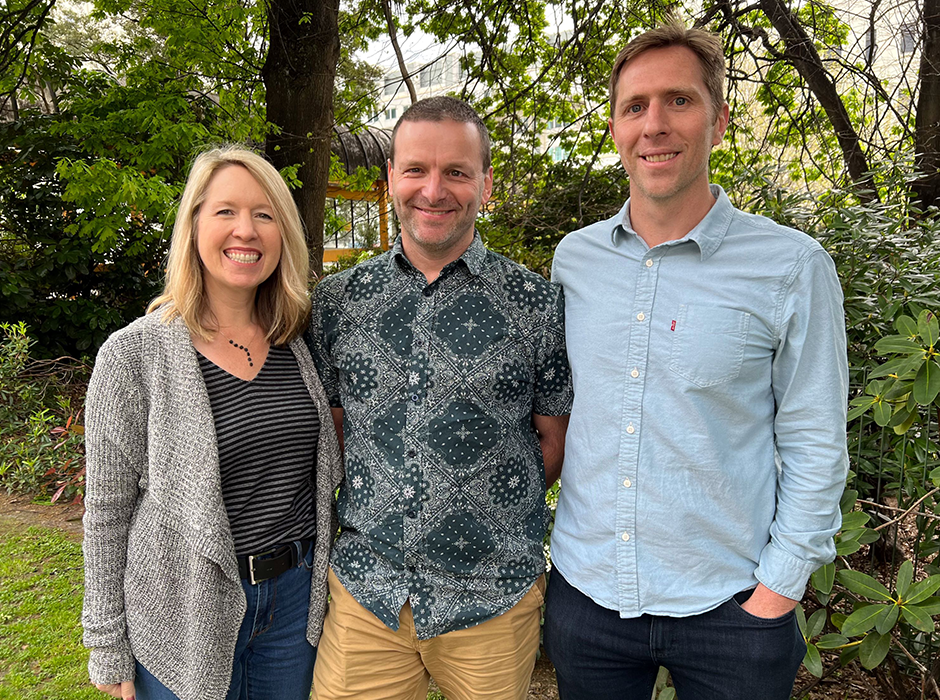
Pictured from left to right is Professor Rebecca Campbell, Professor Greg Anderson and Dr Mike Garratt, who say they are grateful for this grant, and look forward to using each of their different strengths to support GCRLE’s mission to reframe the narrative around women’s reproductive health.
Menopause is often described as puberty’s evil older sister, but can reproductive ageing processes like this be delayed in any way?
University of Otago researchers have received $336,759 from the prestigious Global Consortium for Reproductive Longevity and Equity (GCRLE) to investigate just that.
Dr Mike Garratt, Professor Rebecca Campbell and Professor Greg Anderson, all based at the School of Biomedical Sciences Centre for Neuroendocrinology, are the “very happy” recipients of this grant aimed at extending the female fertility period.
“We’re elated to become part of this significant international community who are doing very important work on increasing reproductive longevity,” Dr Garratt says.
“It’s fantastic to have received this grant and play our part in GCRLE’s altruistic vision of learning more about the disparities between men and women’s reproductive ageing.”
He says that the grant will be used to investigate how researchers might ‘uncouple’ nutrition from reproduction to extend female fertility.
Dr Garratt explains that research has already identified that restricting female mice’s calorie intake in early age can extend their later reproductive life. Their team plans to investigate uncoupling those two things - increasing the reproductive capabilities of mice without the need for calorie restriction.
With a background in evolution and the biology of ageing, he believes that this research is important because it could reveal what happens to human reproductive systems as they age, as well as how this might be extended to increase fertility later in life.
“I came to Otago five years ago because I knew there were brilliant researchers like Greg and Rebecca working on the neuroendocrine mechanisms that control fertility.
“I wanted to work with people like them to understand how these processes may influence ageing and why investing in certain traits earlier in life affects later-life fertility.
“The ultimate goal of this research and the wider consortium is to provide greater choice for women's fertility decisions at different periods of life, and to improve health during and after menopause.”
The GCRLE grant includes funding for researchers to attend a conference in America where the global network of researchers working with the GCRLE will come together to share their findings and synergise their research goals.
-Kōrero by the Division of Health Sciences Communications Adviser, Kelsey Schutte.